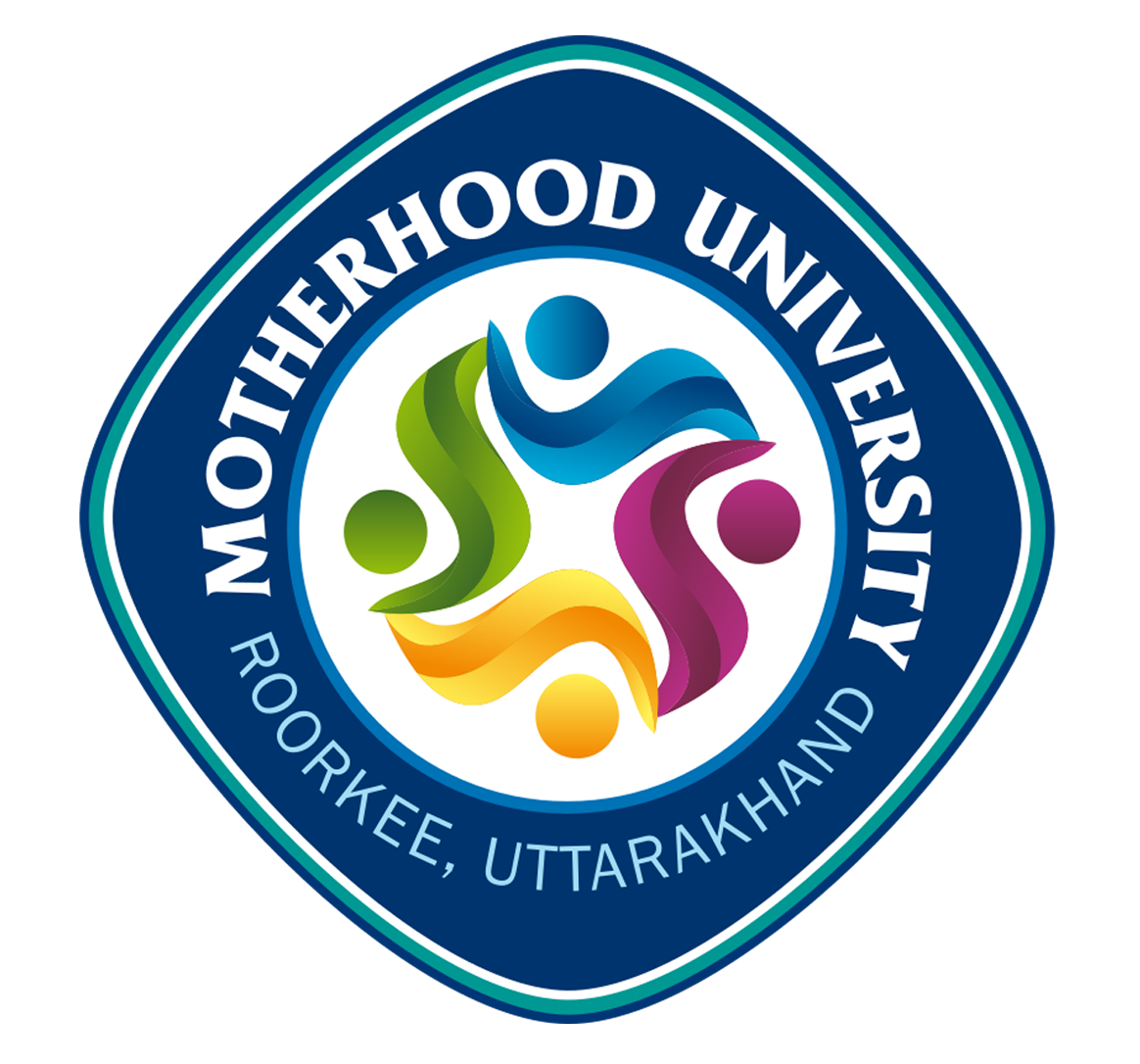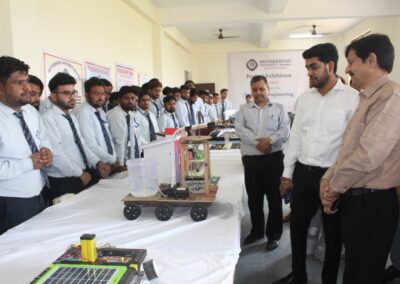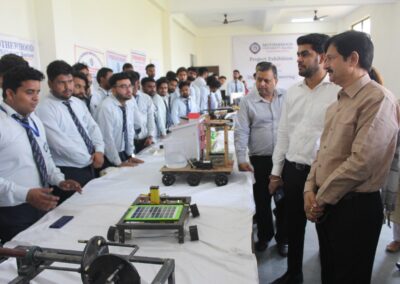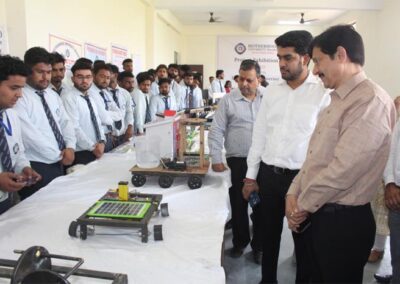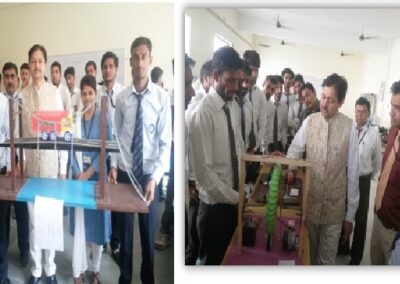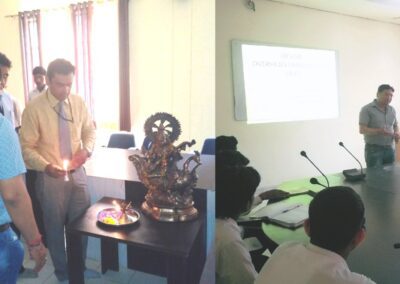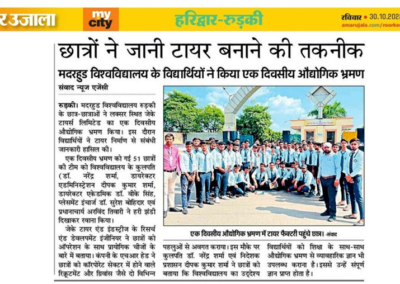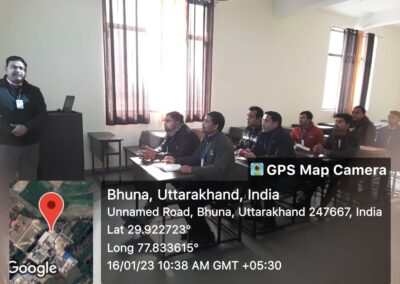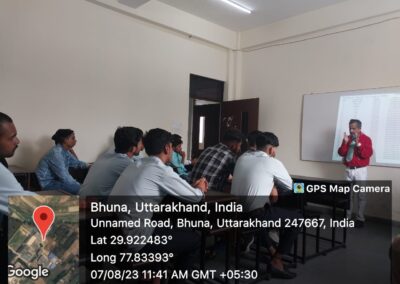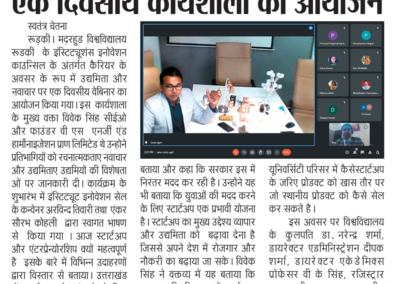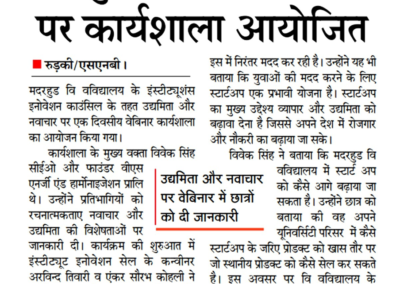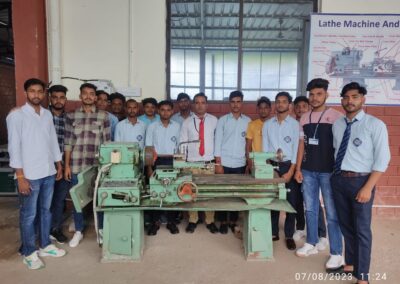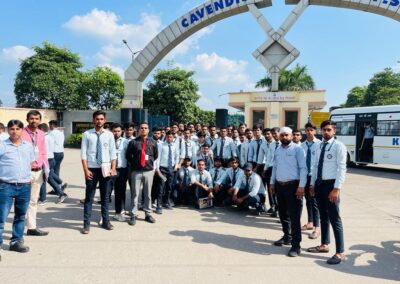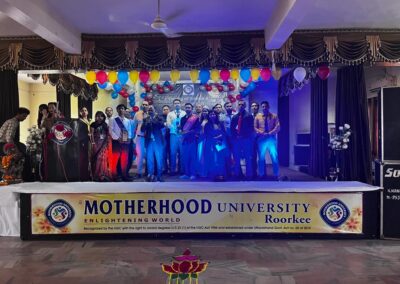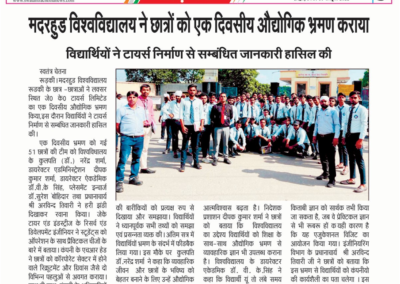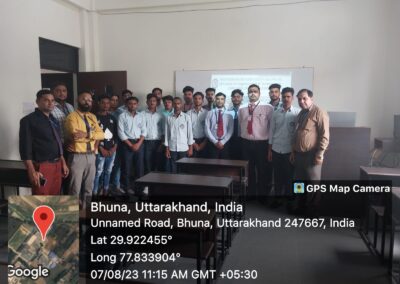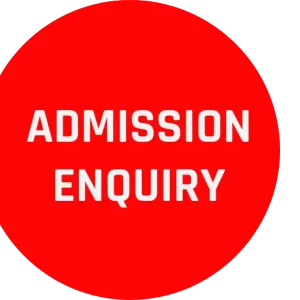Faculty of Engineering and Technology
Principal’s Message
Welcome to the Faculty of Engineering & Technology Motherhood University, Roorkee !
The Motherhood University campus in Roorkee is home to the world class infrastructure to nurture design education with state-of-the-art research facilities and modern library, with opportunities for collaboration with premier national and international higher education institutions.
Prof. (Dr.) Anuj Sharma
Principal
Faculty of Engineering & Technology
Motherhood University, Roorkee
Programs Available
FoE, Motherhood University
Diploma in Engineering
ME | CE | EE | CSE
Diploma in Engineering
Lateral Entry ME | CE | EE | CSE
Faculty of Engineering And Technology
About
The Faculty of Engineering & Technology was established in 2015, as one of the faculties of Motherhood University, Roorkee. The vision of the Faculty of Engineering and Technology (FoET) is to be globally renowned for imparting quality engineering education. The FoET’s mission is to produce morally aware, dynamic, competent engineering professionals who will steer the nation to a better future. The Faculty offer diploma in engineering in three branches of engineering i.e. Civil Engineering, Electrical Engineering & Mechanical Engineering. The Faculty of Engineering and Technology (FoET) is intently focused on delivering a world-class educational experience to its students. The outstanding teaching and research facilities coupled with a practical and forward-thinking approach provide a distinctive and high-quality academic experience focused on developing the skills and knowledge of the students, thereby allowing a smooth transition for them from the academic setup to the portals of the industry.
Being one of the best engineering institutes in Uttarakhand, FOET-MHU has recognized that education can even go beyond boundaries. Remarkable facilities and diverse co-curricular activities serve these educational purposes. The well-maintained campus provides a sense of persistent vision, stability, and management. Besides classroom training, FOET-MHU emphasizes on intensive interactions between students and mentors and provides excellent facilities such as technology-enabled classrooms, Projector rooms, auditoriums, libraries, and much more.
VISION
To be an educational entity providing globally competent, skilled, technical and ethical professionals.
MISSION
1. Effective teaching through various teaching learning methods to make the students understand all the theoretical and practical concepts of engineering.
2. To develop their technical skills as per global standards in their streams through hands on practice in labs workshop and industrial training.
3. To develop their perspective to observe and identify real time problems technically and solve them with innovative ideas to harness their creativity and develop lifelong learning.
4. To make them globally competent professionals through Soft skills development programs, Co-curricular activities, personality development Programs, industry visits, Seminars etc.
5. To inculcate in them ethical values through awareness programmes, workshops, seminars etc.
Program Educational Objectives (PEOs)
PEO 1. To excel in professional career and/or higher education by acquiring knowledge in mathematical ,computing and electrical/mechanical/civil engineering.
PEO 2. To analyze real life problems & design electrical/mechanical/civil systems appropriate to its solutions that are technically sound, economically feasible and socially acceptable.
PEO 3. To exhibit professionalism, ethical attitude, communication skills, team work in their profession and adapt to current trends by engaging in lifelong learning.
PROGRAM OUTCOMES (POs)
Engineering Students will be able to:
1. Engineering knowledge: Apply the knowledge of mathematics, science, engineering fundamentals, and an engineering specialization to the solution of complex engineering problems.
2. Problem analysis: Identify, formulate, review research literature, and analyze complex engineering problems reaching substantiated conclusions using first principles of mathematics, natural sciences, and engineering sciences.
3. Design/development of solutions: Design solutions for complex engineering problems and design system components or processes that meet the specified needs with appropriate consideration for the public health and safety, and the cultural, societal, and environmental considerations.
4. Conduct investigations of complex problems: Use research-based knowledge and research methods including design of experiments, analysis and interpretation of data, and synthesis of the information to provide valid conclusions.
5. Modern tool usage: Create, select, and apply appropriate techniques, resources, and modern engineering and IT tools including prediction and modeling to complex engineering activities with an understanding of the limitations.
6. The engineer and society: Apply reasoning informed by the contextual knowledge to assess societal, health, safety, legal and cultural issues and the consequent responsibilities relevant to the professional engineering practice.
7. Environment and sustainability: Understand the impact of the professional engineering solutions in societal and environmental contexts, and demonstrate the knowledge of, and need for sustainable development.
8. Ethics: Apply ethical principles and commit to professional ethics and responsibilities and norms of the engineering practice.
9. Individual and team work: Function effectively as an individual, and as a member or leader in diverse teams, and in multidisciplinary settings.
10. Communication: Communicate effectively on complex engineering activities with the engineering community and with society at large, such as, being able to comprehend and write effective report sand design documentation, make effective presentations, and give and receive clear instructions.
11. Project management and finance: Demonstrate knowledge and understanding of the engineering and management principles and apply these to one’s own work, as a member and leader in a team, to manage projects and in multidisciplinary environments.
12. Life-long learning: Recognize the need for, and have the preparation and ability to engage in independent and life-long learning in the broadest context of technological change.
Program Overview
Diploma in Engineering (ME/CE/EE/CSE)
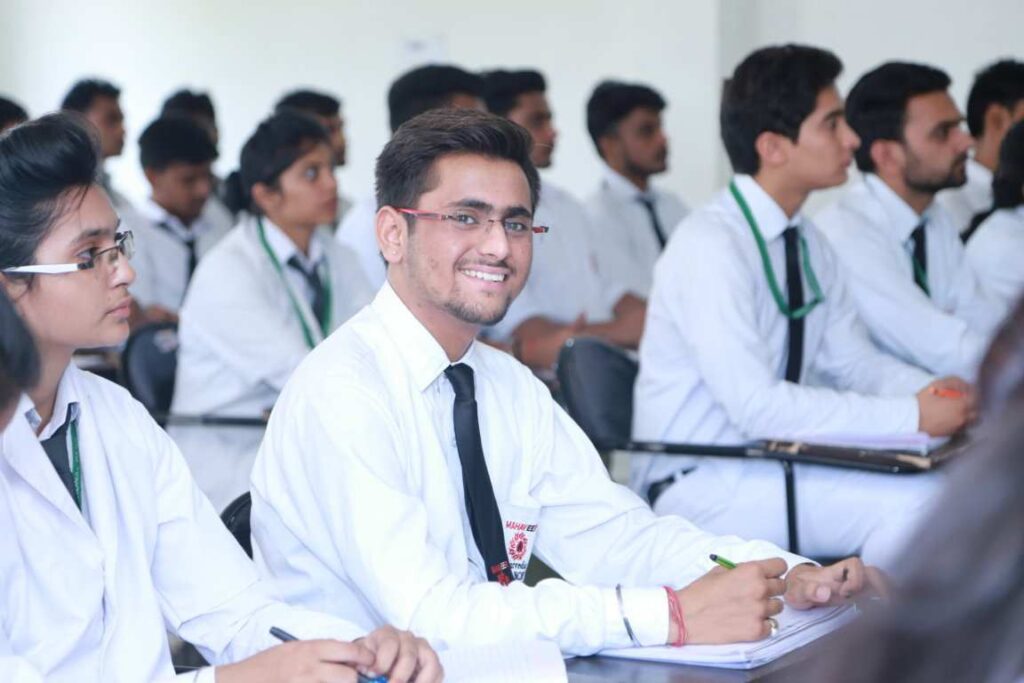
Diploma in Engineering (ME/CE/EE/CSE)
PPursuing a Diploma in Civil Engineering offers numerous advantages for individuals interested in the construction and infrastructure sectors. This qualification provides a solid foundation in civil engineering principles and prepares graduates for various roles in the industry.
Pursuing a Diploma in Electrical Engineering offers a multitude of benefits for individuals aspiring to enter the dynamic field of electrical systems, electronics, and power generation. This qualification provides a solid foundation in electrical engineering principles and equips graduates with the skills necessary to excel in various technical roles
Pursuing a Diploma in Mechanical Engineering offers numerous advantages for individuals interested in entering the engineering field without committing to the longer duration of a bachelor's degree.
A Diploma in Computer Science is a short-term, industry-oriented program designed to provide foundational knowledge and skills in computer science and related fields. Typically lasting 2 to 3 years, this diploma program is ideal for students who want to enter the IT industry quickly, without committing to a full undergraduate degree like a BCA or B.Tech.
Level: Diploma
Program Duration: 3 Years | 6 Semesters
Eligibility: Class 10th Passed
Minimum Aggregate Score Requirement:
Gen/OBC-40 % | SC/ST- 40 %
Faculty of Engineering & Technology
Diploma in Engineering ME|CE|EE|CSE
REGISTRATION FEE
PROGRAM FEE / YEAR
PROGRAM FEE / YEAR FOR UTTARAKHAND RESIDENTS
EXAM FEE / YEAR
Diploma in Engineering (Lateral Entry) ME|CE|EE|CSE
REGISTRATION FEE
PROGRAM FEE / YEAR
PROGRAM FEE / YEAR FOR UTTARAKHAND RESIDENTS
EXAM FEE / YEAR

Advantages
1. Shorter Duration and Accelerated Workforce Entry
• Time-Efficient Education • Early Career Start
2. Cost-Effective Education
3. Practical and Hands-On Training
4. Focused and Specialized Curriculum
5. Pathway to Higher Education
6. Enhanced Employability
7. Industry Connections and Networking Opportunities
8. Development of Critical Skills
9. Flexibility for Diverse Learners
10. Foundation for Entrepreneurship
11. Global Recognition and Mobility
12. Personal Growth and Confidence
13. Adaptability to Technological Advancements

Job Options
Job Prospects for Diploma in Civil Engineering Graduates
1. Civil Engineering Technician
2. Site Engineer
3. Survey Technician
4. Structural Assistant
5. Transportation Assistant
6. Water Resources Technician
7. Construction Manager Assistant
8. Environmental Technician
9. Project Coordinator
10. Quality Control Inspector
11. CAD Technician (Computer-Aided Design)
12. Maintenance Engineer
13. Geotechnical Assistant
Job Prospects for Diploma in EE/ME Graduates
1. Electrical Technician
2. Electronics Technician
3. Power Plant Operator
4. Maintenance Engineer
5. Telecommunications Technician
6. Instrumentation Technician
7. Automation Technician
8. Control Systems Technician
9. CAD Technician (Computer-Aided Design)
10. Electrical Inspector
11. Renewable Energy Technician
12. Project Coordinator
13. Quality Control Inspector
Job Opportunities After a Diploma in Computer Science:
1. Software Developer/Programmer
2. Web Developer
3. Network Administrator
4. IT Support Specialist
5. Database Administrator (DBA)
6. Technical Support Engineer
7. Software Tester/QA Engineer
8. Computer Hardware Engineer:
9. Mobile App Developer:
10. Digital Marketing Specialist:
11. Cybersecurity Specialist:
12. Cloud Computing Specialist:
13. Freelancer/Entrepreneur:
14. Game Developer:
Diploma in Engineering (Lateral Entry)
D.E.
Level: Diploma
Program Duration: 2 Years ( 4 Semesters)
Eligibility: 10+2 or equivalent with PCM OR ITI Diploma (2 Years)
Minimum Aggregate Score Requirement:
Gen/OBC - 40 % | SC/ST - 40 %
Best in class infrastructure and facilities.
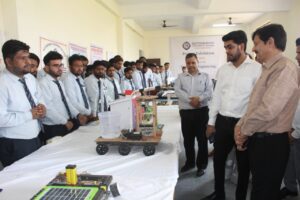
Program Scheme & Syllabus
Diploma in Engineering
2021-23
1st & 2nd SEMESTERS
3RD SEMESTER
4TH SEMESTER
5TH SEMESTER
6TH SEMESTER
2022-25 (3 Year’s Program) & 2022-24 (Two Year’s Program-Lateral entry)
1st SEMESTER
2nd SEMESTER
3RD SEMESTER
Fee Structure
Faculty of Engineering & Technology
Diploma in Engineering ME|CE|EE|CSE
REGISTRATION FEE
PROGRAM FEE / YEAR
PROGRAM FEE / YEAR FOR UTTARAKHAND RESIDENTS
EXAM FEE / YEAR
Diploma in Engineering (Lateral Entry) ME|CE|EE|CSE
REGISTRATION FEE
PROGRAM FEE / YEAR
PROGRAM FEE / YEAR FOR UTTARAKHAND RESIDENTS
EXAM FEE / YEAR
Events & Activities
Orientation Program for New Students of DoE
An orientation program was organized for the newly admitted students of Diploma in Engineering first year at Faculty of Engineering and Technology, Motherhood University, Roorkee. In the orientation program, Principal Er. Arvind Tiwari gave a detailed information to...
